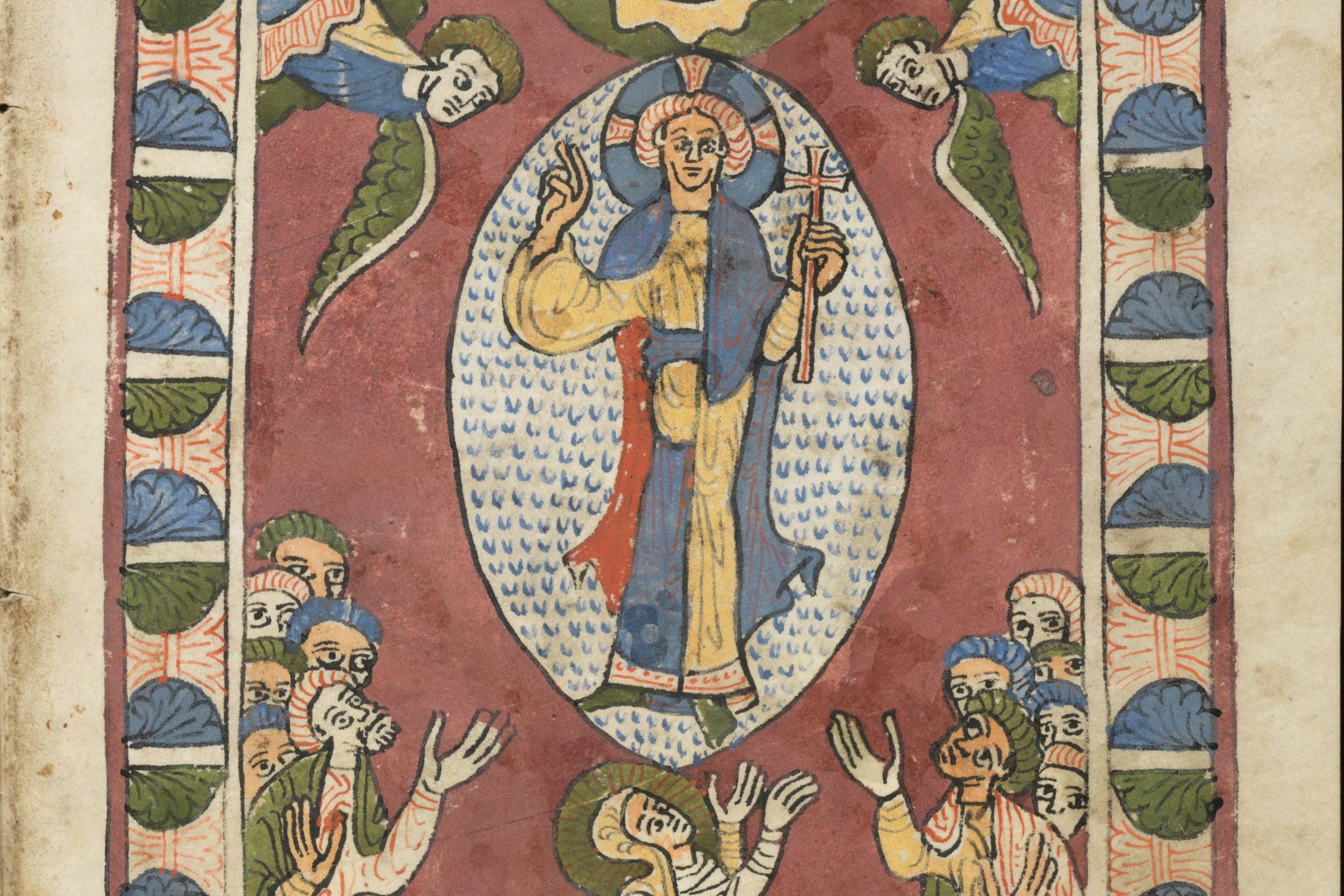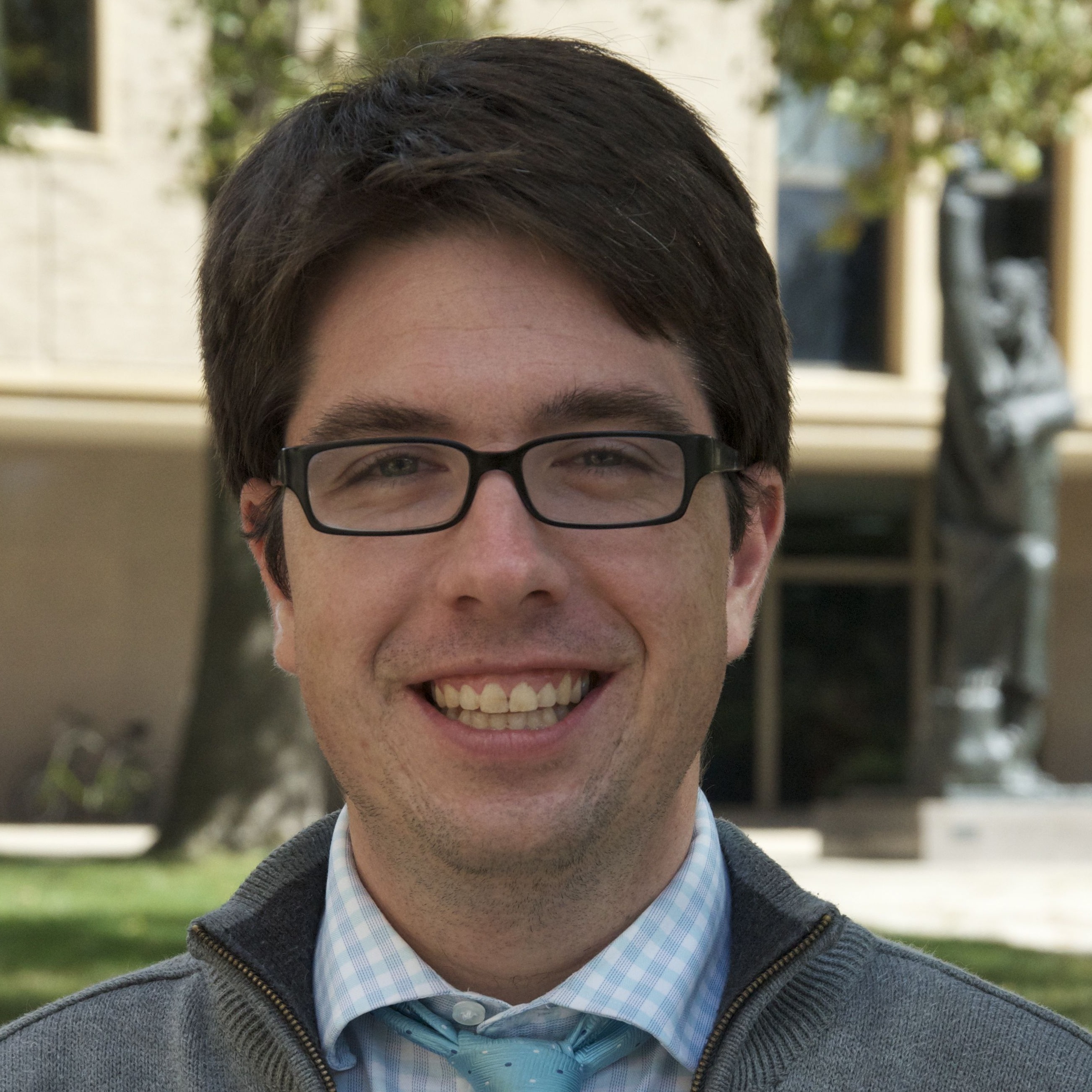The feast of the Ascension is puzzling. The full presence of the risen Lord made available during the season of Easter is now interrupted by Christ ascending. The bodily presence of Jesus is no longer immediately available to the disciples.
Yet, in both the Gospel of Luke and the Acts of the Apostles (describing the exact same event), the Apostles are not sorrowful about this absence. In Acts, they are told by the angels, “Men of Galilee, why are you standing there looking at the sky? This Jesus who has been taken up from you into heaven will return in the same way as you have seen him going into heaven” (Acts 1:11). They are experiencing a hopeful bewilderment, waiting with wonder for what will happen next.
In the Gospel of Luke, we hear what they do during this in-between time. They do not just sit around but as Christ ascends they worshipped him and “then returned to Jerusalem with great joy, and they were continually in the temple praising God” (Lk 24:52–53). Why do the Apostles praise the Father for Jesus’ absence?
Turning to Psalm 47, we begin to understand the hope that they have in seeing the risen Lord disappear from their sight. Psalm 47 is a great enthronement psalm, celebrating the kingship of the God of Israel over all the nations: “God mounts his throne amid shouts of joy;/the LORD, amid trumpet blasts” (Ps 47:6). In Jesus’ Ascension, the Church experiences the Word made flesh’s enthronement as King of the cosmos.
The Apostles celebrate at the feast of the Ascension not because Jesus has taken up a home far away in heaven. Instead, the Ascension is that feast in which Christ is enthroned as head of the Church, which is now “the fullness of the one who fills all things in every way” (Eph 1:23). The resurrected Christ is still showing himself to all the world through the Church, where all of humanity is lifted up into God’s very life.
This activity of lifting up all of humanity, all of creation in a sacrifice of love continues. Hebrews notes, “Christ did not enter into a sanctuary made by hands, a copy of the true one, but heaven itself, that he might now appear before God on our behalf” (Heb 9:24). And because he is our priest, the one who knew our weakness, the one who is still offering us up in love to the Father, we can approach God’s throne with the confidence that we are sons and daughters of the triune God.
The Ascension is not a feast of sorrow or disappointment. It is a festival in which we celebrate that the Word has become flesh in Jesus Christ. Jesus, fully human and fully divine, offered back to the Father our humanity, cleansing our entire selves from the punishment of sin and death.
And even now, this offering of love takes place for us in the Mass, where we eat his Body and drink his Blood. We enter into his sacrifice of love in this act of eating, and we commit ourselves to make available to the whole world our flesh and blood as sign of his presence.
At the Ascension, Christ may disappear from sight. But as the head of the Church, he is still available to us: in the Scriptures, in the Eucharist, in the Christian family, in the poor. We celebrate this pervasive presence in the Ascension. And we long for the day when we gaze upon him face to face with the angels and the saints in the heavenly Jerusalem. The one we have seen so many times before with the eyes of faith.
![]()
This article originally appeared in Our Sunday Visitor: Newsweekly on April 30, 2016 and is reproduced here with the permission of the publisher.
Featured Image: The Ascension of Jesus (12th c.); Cycle of Miniatures—Sarnen, Benediktinerkollegium, Cod. membr. 83, f. 7r; courtesy of e-codices; CC BY-NC 2.0.



